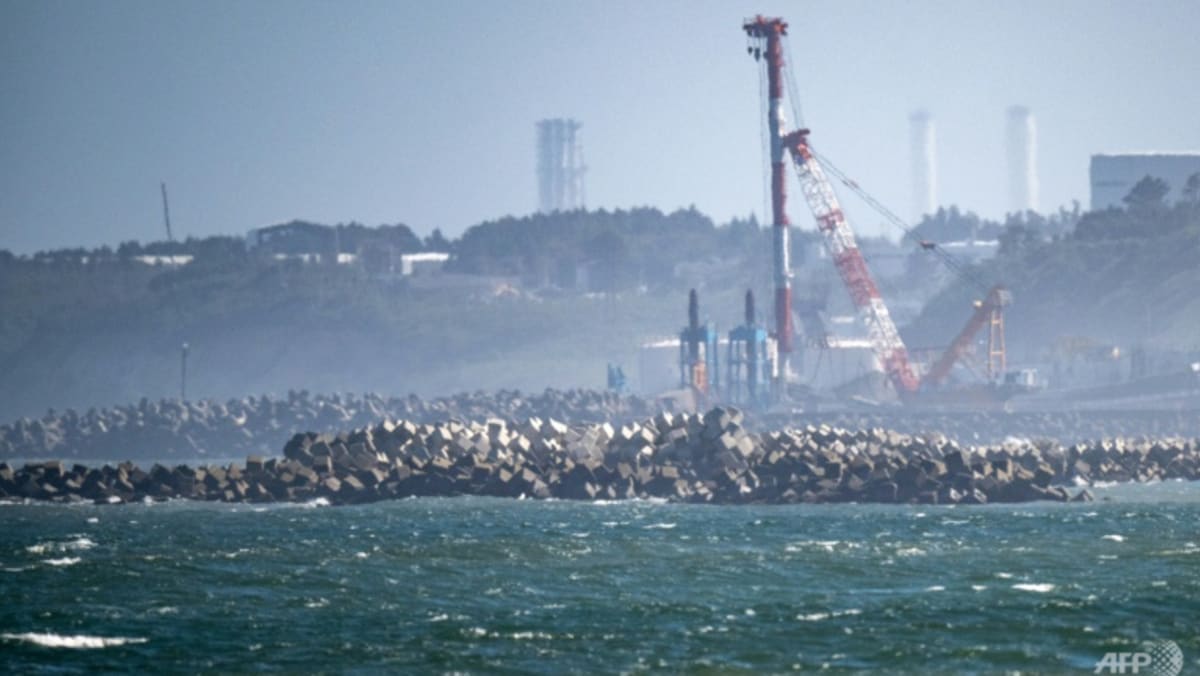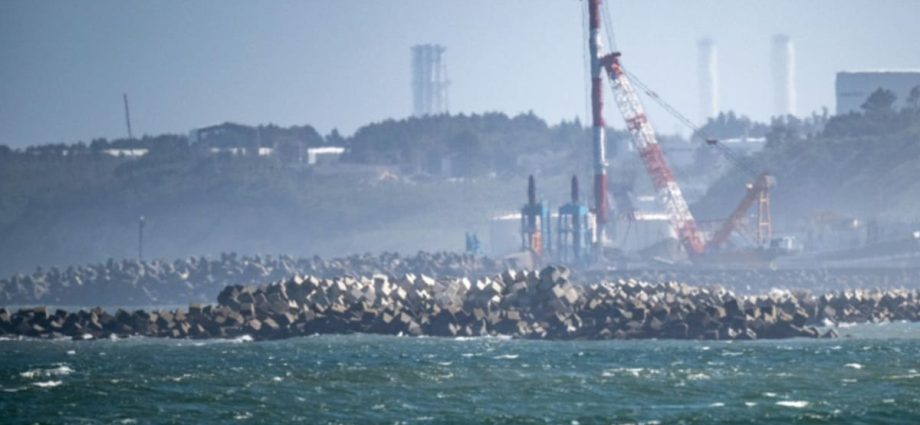
Japan’s environment ministry said it had collected seawater samples from 11 different locations on Friday, results of which would be released on Sunday.
The Fisheries Agency also pulled a flounder and a Gurnard fish early Friday from designated sampling spots near the pipe that released the Fukushima water.
“By publishing those data every day in a highly transparent fashion, we will demonstrate our actions based on scientific evidence,” said Trade and Industry Minister Yasutoshi Nishimura, who is in charge of nuclear policies.
IAEA BACKING
TEPCO says that the water – more than 500 Olympic pools’ worth – from cooling the remains of three reactors has been filtered of all radioactive elements except for tritium and is safe.
This is backed by the International Atomic Energy Agency, which said on Thursday that samples taken from the first batch of diluted water prepared for discharge showed that tritium levels were well within safe limits.
“IAEA experts are there on the ground to serve as the eyes of the international community and ensure that the discharge is being carried out as planned consistent with IAEA safety standards,” said the chief of the UN body, Rafael Grossi, in a statement.
Most analysts agree although environmental pressure group Greenpeace has said that the filtration process, known as ALPS, does not work and that a vast amount of radioactivity will be released into the ocean.
Japan’s move iinfuriated China, which says the action contaminates the ocean, and widened a ban on aquatic produce in place for 10 Japanese prefectures to cover the whole country.
Nishimura on Friday echoed Prime Minister Fumio Kishida in urging China, Japan’s biggest market for seafood, to reverse the ban.
“The Japanese government … will strongly demand baseless regulations to be immediately terminated,” Nishimura said.
South Korea’s government, which is trying to improve relations with Japan in order to counter China, has endorsed the water release although some ordinary people are alarmed.

